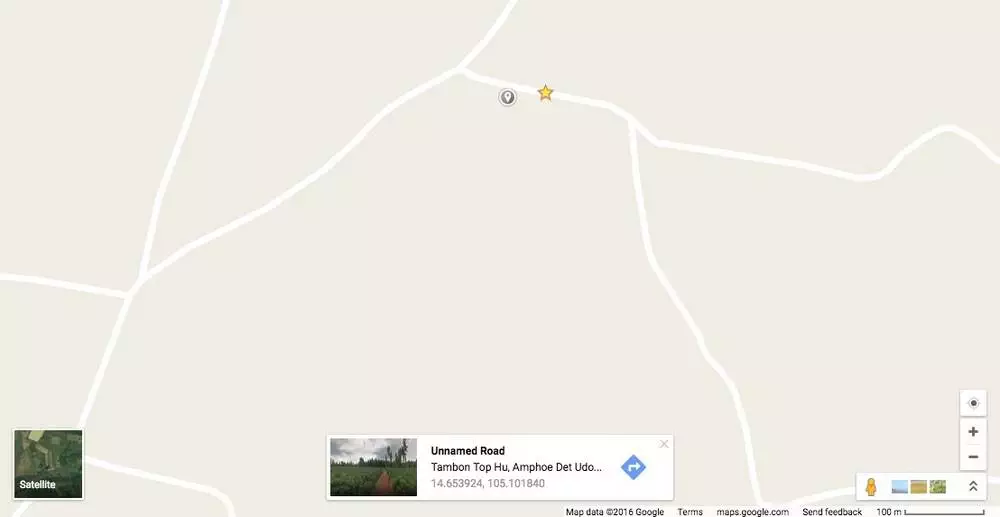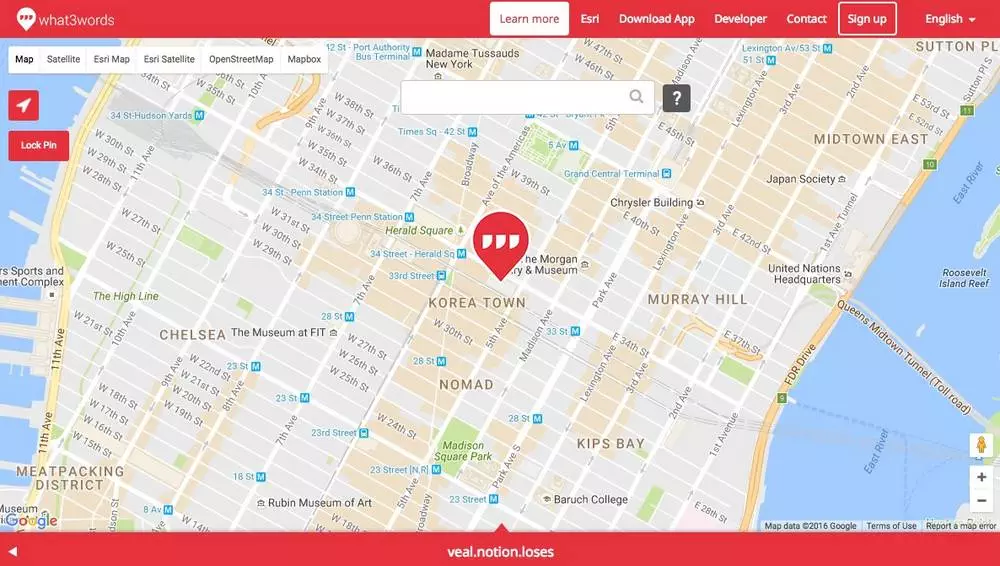What happens if your travels take you to the middle of nowhere?

If you’ve done any traveling off the beaten path, you’re probably aware of the limitations of whatever address systems happen to be in place. I’ve had to use an address like ‘6 kilometers down an unnamed dirt road from the highway’ because that’s all that exists in some parts of Thailand. That’s also the reason why I’ve used and loved GPS coordinates for years.
Beyond the fact they’re specific to a small point on the planet and address-system-agnostic, they just work. Type them into your favorite map’s search engine and find your way there. GPS coordinates aren’t perfect, though. They’re confusing to the uninitiated. A typo can be disastrous. Not enough numbers in coordinates don’t get you to a specific enough place. Still, they’re incredibly helpful, but it’s long needed a bit more… friendliness… to them.
Enter what3words.com:

You know how bit.ly, is.gd, or another URL shortening service whisks you away to thatreallylongwebsite.com/thatcrazylongpagenamenooneremembers? That’s basically what these guys do with GPS coordinates. Three words is all you need to narrow your location to a 3 meter by 3 meter (9 feet by 9 feet) square. All told, they’ve created 57 trillion squares, each about the size of a living room in a house / apartment, and more than enough to indicate a specific area in many circumstances.
Use the map at https://map.what3words.com/, which shows you the three-word ‘address’ for any place on the planet using Google Maps.
It’s reached a point in development where the entire country of Mongolia is using the system to create addresses across its rural stretches.
- The Museo Del Oro (the Gold Museum) in Bogota, for example? carting.exams.copycat.
- The Grand Palace in Bangkok? teams.global.bedrooms
- The Empire State Building? veal.notion.loses
As you’ve noticed, words are separated by a dot, and those words make up the link to go there (http://w3w.co/carting.exams.copycat, in this case).
The three words used are randomized (with swear words and homonyms – but not negative-meaning words – taken out), and word sets are also available in Spanish, French, Italian, German, Portuguese, Russian, Swedish, and Turkish. Do note, however, that you can’t simply translate a trio of words from one language into another and expect to get to the same place. Also, the shorter / simpler words are used in the more populated area, while unpopulated places like the middle of the ocean use longer / more complex words.
Another point: similar words are intentionally spaced out to avoid confusing. While it sounds non-intuitive, the difference between table.chair.lamp and table.chair.lamps means they’re on two entirely different continents. Think about that the next time you ask your friend if they’re on Virginia Street or Virginia Avenue.
So it’s clear, What3Words still uses the GPS coordinates on the backend. It’s still a backbone to finding your way around the world, and I’ll still be using GPS coordinates here on One Weird Globe. What3Words simply gives those coordinates a layer of words to make sharing easier.
The free app is available for iOS and Android, naturally.
Why would you use this?
- Because you’re meeting some other people in the middle of nowhere
- Because you’re about to create a scavenger hunt
- Because you’re ‘translating’ GPS coordinates to a paper book, sign, or other non-electronic display, and want to avoid a typo.
Why wouldn’t you use this?
- Because GPS coordinates are enough for you, or you’re only using links people click on.
- Because you need to stick with a system that’s intuitive without a smartphone
What do you think? Too complex or the future? Comments are open.


